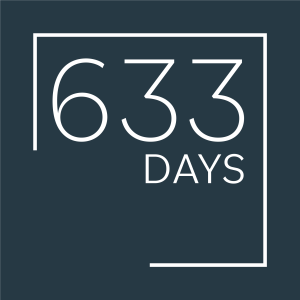CHAPTER THIRTEEN:
My Most Public Failure/ Commissioner Story
633 Days Inside by Greg Lindberg
CHAPTER THIRTEEN:
My Most Public Failure/ Commissioner Story
Every human you encounter has something to teach you.
ask all my employees to do personality charts. My personality chart reflects that I am low on social, have a high preference for autonomy, am low preference for social interaction, and show very high detail orientation. And detail orientation at a very high level becomes paranoia. I write everything down. Every single thing I do is written down on my to-do list and then crossed off and checked. I have spreadsheets on everything I do. Being detail-oriented has been an important part of success in business because, after all, you’ve got to watch your business. As it turns out, I wasn’t paranoid enough.
With a low social preference (and thus low social ability), I often miss
important cues from social interactions and tend to take statements by other people at their analytical face value rather than understanding the social implications of the conversation.
Perhaps subconsciously feeling this social weakness early on, I hired Bridgett Hurley as a “master of all things people related” in the late 1990s. She has been instrumental in building the people side of Global Growth with a social awareness and people related talent that far exceeds anything I’ve been able to develop.
In 2016, I became politically active during the 2016 general election for North Carolina’s Commissioner of Insurance. I exercised my First Amendment right to support former Commissioner Wayne Goodwin’s campaign. This ultimately set off a series of unfortunate events that lead to my indictment, conviction and imprisonment.
In March of 2018, the North Carolina Commissioner of Insurance sent me an email stating that I was doing “an outstanding job” answering “hardball questions” from insurance regulators. Being somewhat socially (and thus politically) naive, I took this statement at face value.
Little did I know, at that very same time the NC Insurance Commissioner had convinced the FBI to help him entrap me in a bribery scheme by recording my conversations with him where he repeatedly and aggressively demanded donations while I told him that “everything we do must be fully compliant with North Carolina law.”
Had Bridgett been a part of the meetings with the NC Insurance Commissioner, she would have immediately realized, as she often does, that “something is off” about the way the NC Insurance Commissioner was behaving. I didn’t see the snake in the grass, and she would have.
The lesson: Surround yourself with people who excel at your areas of weakness. In the early years, Bridgett and I sometimes clashed because we are very different people. But unless you welcome differing views, you are not going to make the right decisions. Conformity and homogeneity on a team is a recipe for failure.
Given my low social orientation and my low level of social and political awareness, I never suspected that the NC Insurance Commissioner was lying to me in his email. I never suspected that he was lying to me in his conversations with me in order to set me up and execute his entrapment scheme. This entrapment ultimately led to me being sent to prison
after the judge in my case ordered the jur y to find me guilty in what was
essentially a directed verdict.
Throughout this battle, I learned what extraordinary strength our business philosophy brings to our group of companies because our companies deliver quarter after quarter of record results. Amid the worst legal battles we have ever seen, and amid the worst economic environment in decades, our group of companies produced record results. My parents were always so supportive of me. I don’t think it ever crossed their minds that some people resent success and will try everything they can to ruin you. That was the single biggest surprise in all of this.
My parents were always proud of me—during both my failures and successes. “Just do your best” is all they ever said. I (naïvely) never expected the hatred from all quarters for being “successful.” My parents were honest, hard-working people.
Turning adversity into advantage does not require a formal education. It does not require a particular background or heritage. It does not require any particular talent or skill. It does not require connections, lots of friends, or even any current opportunities.
Turning adversity into advantage only requires your undying faith and commitment to yourself that you can, and will, turn your adversity into an advantage, or that you will die trying. Without the commitment to achieve this advantage or die trying, you might not get there.
